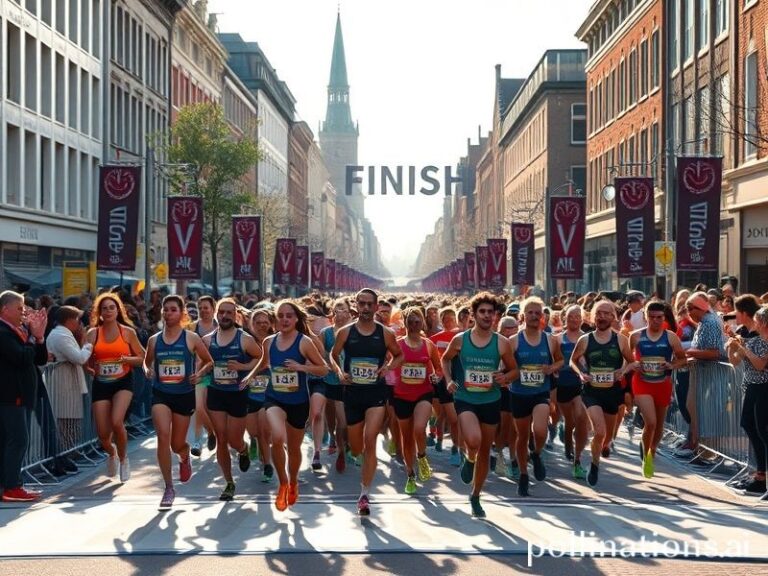Global Decathlon: Ten Events, One Planet, Zero Chill
The Decathlon: Ten Ways to Pretend Civilization Still Has Stamina
Bylines from five continents suggest that when the world finally collapses under the weight of its own push-notifications, the last two people standing will be arguing about whether the 1500 m counts as “distance running” or “ritual self-harm.” In the meantime, the decathlon persists—an Olympic anachronism in which a single human is forced to master ten separate disciplines, presumably because specialization is for insects and hedge-fund quants.
Global Context, or How We Still Outrun Our Inboxes
From Nairobi to Nanjing, the decathlon is sold as the purest test of “total athlete.” The IAAF—now rebranded as “World Athletics,” because nothing says progress like paying consultants to drop one word—keeps a ranking that quietly decides which nations get to feel virile every four years. Estonia, population 1.3 million and falling faster than its birth rate, still clings to a bronze from 2008 like a talisman against demographic doom. Meanwhile the United States, whose citizens average 4,800 steps a day (roughly the distance from couch to fridge and back), exports collegiate decathletes the way Switzerland exports discreet banking: a tidy little reputation laundering scheme.
Training Camps as Soft-Power Outposts
Drive three hours outside Doha and you’ll find an air-conditioned biome dome where French biomechanists poke Qatari teenagers with electrodes, all in the hope that someday a Gulf state can hoist the Ashton Eaton Memorial Trophy of Respectability. The funding is opaque, the labor force imported, and the carbon footprint visible from the International Space Station—yet somehow this is “sportswashing” at its most polite: sweat equity instead of cruise missiles. Across the Black Sea, Ukraine still hosts winter camps in the Carpathians, where athletes chop wood for warmth and occasionally duck drone flyovers. Call it interval training with existential dread.
Scoring Tables as Late-Stage Capitalism in Spreadsheets
The decathlon’s scoring algorithm—born in 1912, refined by Cold War statisticians who clearly had hobbies—assigns points in a way that only an actuary could love. Throw a javelin 70 meters and you net 862 points; run 100 m in 10.3 seconds and you get 1,010. Somewhere in Lausanne, a committee meets every decade to tweak these numbers, ensuring that no event ever becomes “too important.” It’s like the Fed adjusting interest rates, except the collateral damage is hamstrings instead of home loans.
Broader Significance, or Why We Still Count the Ways to Fall Apart
In an era when attention spans are shorter than a TikTok clip, the decathlon demands two consecutive days of sustained focus—an act so rebellious it might soon require a UN resolution. Watch the livestream and you’ll see crowds thin between the long jump and the shot put, spectators drifting off to food trucks or civil unrest, whichever is closer. Yet the heptathlon and decathlon remain the only Olympic events whose winners are routinely called “the world’s greatest athletes,” a title that scans as both compliment and accusation. After all, if you’re truly great at ten things, the modern economy will happily pay you for none of them.
Conclusion: Ten Events, One Glorious Denial
When the final 1500 m staggers to a close, the scoreboard tallies not just points but the sum total of human delusion: that we can still sprint, leap, vault, and throw our way toward meaning; that multi-tasking isn’t just a corporate euphemism for burnout; that flesh, properly coached and carb-loaded, can outrun the algorithms. The medalists will pose for photos, national anthems will play, and somewhere a teenager in Jakarta or Jacksonville will decide that yes, obliterating one’s ACL ten different ways is preferable to scrolling Instagram for another decade. If that isn’t hope, it’s at least the most entertaining form of despair we’ve managed to televise.







